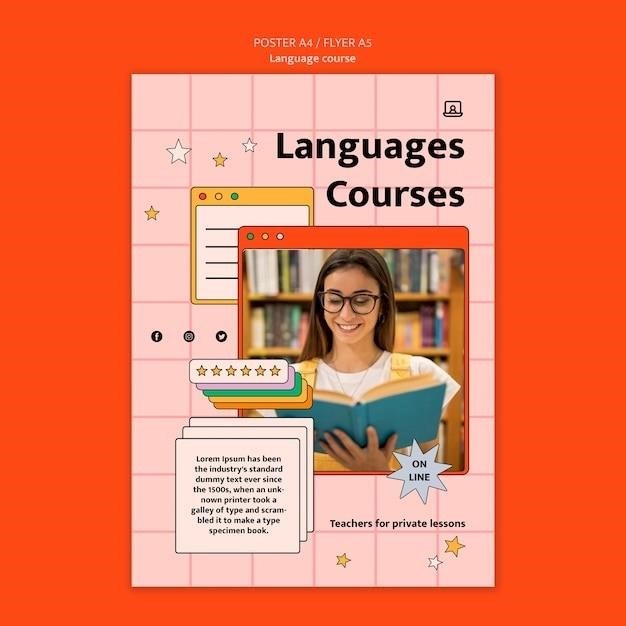Basic Arabic Words for Beginners: A PDF Guide
Embark on your Arabic language journey with our comprehensive PDF guide! It’s designed to equip beginners with essential vocabulary, facilitating smoother communication and cultural understanding․ Download and start learning today!
Welcome to the exciting world of Arabic! This section provides a foundational introduction to Arabic vocabulary, essential for beginners․ Learning new words is the first step towards fluency and understanding the rich culture associated with the language․ Our PDF guide offers a structured approach, focusing on commonly used terms․ Whether you’re planning a trip, connecting with Arabic speakers, or simply expanding your linguistic horizons, mastering basic vocabulary is key․ Start with greetings, numbers, and everyday objects to build a solid base for future learning․ We’ll provide links to free downloadable lists․
Essential Greetings and Courtesies
Mastering greetings and courtesies unlocks respectful communication․ Our guide provides essential Arabic phrases for introductions, expressing gratitude, and showing politeness․ Learn to connect meaningfully with native speakers today!
“As-salamu alaykum” and its Significance
“As-salamu alaykum,” meaning “Peace be upon you,” is much more than a simple greeting in Arabic culture․ It’s a profound expression of goodwill, respect, and a shared desire for peace․ Understanding its significance provides insight into Islamic values and social interactions․ This greeting fosters a sense of community and connection․ Using it appropriately demonstrates cultural sensitivity and respect․ Our guide delves into the nuances of this greeting, helping you use it confidently in various social settings, thus enriching your communication and cultural understanding․
Common Responses: “Wa alaykum as-salam”
When greeted with “As-salamu alaykum,” the most common and appropriate response is “Wa alaykum as-salam․” This phrase translates to “And upon you be peace․” It’s a reciprocal greeting, returning the well wishes and acknowledging the initial expression of peace․ Mastering this response is crucial for polite and respectful communication in Arabic-speaking environments․ Our guide provides examples of when and how to use this response, ensuring you engage confidently and appropriately in conversations; Understanding the nuances of this exchange enhances your ability to connect meaningfully with Arabic speakers․
Numbers in Arabic
Unlock the world of Arabic numerals with our guide․ Learn to count and use numbers effectively in daily life; From basic counting to practical applications, we’ve got you covered!
Counting from One to Ten
Mastering the numbers from one to ten is a fundamental step in learning Arabic․ This section provides a clear and concise guide to help beginners grasp these essential numerical terms․ Each number is presented with its Arabic script, transliteration, and pronunciation, making it easy to follow along․ Understanding these basic numbers will not only enhance your vocabulary but also serve as a foundation for more complex numerical concepts in Arabic․ Practice regularly to build confidence and fluency in using these numbers in everyday conversations․ This skill is crucial for various practical applications․
Practical Uses of Numbers
Numbers are indispensable in daily life, and knowing them in Arabic opens doors to countless practical scenarios․ Imagine ordering food, asking for prices, telling the time, or exchanging phone numbers – all require a solid grasp of numbers․ This section highlights the practical application of Arabic numbers in everyday situations․ From navigating markets to understanding dates and times, mastering numbers will significantly enhance your ability to interact with Arabic speakers․ We provide real-world examples and scenarios to illustrate how these numbers are used, ensuring you’re prepared for practical communication․ Practice these examples diligently․
Basic Nouns: Everyday Objects
Discover fundamental Arabic nouns for common objects․ Learn words for everyday items around you, expanding your vocabulary to describe your surroundings․ A PDF guide helps visualize these words․
Words for Home, Food, and Transportation
Expand your basic Arabic vocabulary with essential nouns related to daily life․ This section focuses on words for
“home” (bayt), covering rooms, furniture, and common household items․ Next, explore vocabulary related to “food”
(ta’aam), including fruits, vegetables, meals, and drinks․ Finally, learn words for “transportation” (muwasalat),
covering cars, buses, trains, and airplanes․ Mastering these foundational nouns is crucial for practical communication
and understanding everyday conversations․ Refer to our PDF guide for pronunciation and visual aids to enhance your learning experience․
Essential Verbs: Actions and Activities
Unlock everyday communication by learning essential Arabic verbs! Our guide provides common verbs for daily activities, helping you express actions and engage in basic conversations with confidence․ Start speaking now!
Common Verbs for Daily Communication
Mastering verbs is crucial for constructing sentences and expressing yourself effectively․ This section focuses on frequently used Arabic verbs that form the foundation of daily conversations․ Learn to say “to eat” (أكل), “to drink” (شرب), “to go” (ذهب), “to speak” (تكلم), and “to read” (قرأ)․ Understanding these verbs allows you to describe your actions, ask questions, and participate in simple exchanges․ Our PDF guide offers clear pronunciations and examples to help you integrate these verbs into your vocabulary seamlessly․ Practice regularly to enhance your fluency!
Days of the Week and Time
Unlock the Arabic names for days of the week and basic time-related vocabulary․ This section provides essential building blocks for scheduling, making appointments, and understanding daily routines․
Learning the Arabic Names for Days
Mastering the days of the week in Arabic is a fundamental step in your language learning journey․ This section provides a clear and concise guide to the Arabic names for Sunday through Saturday, along with their pronunciations․ Knowing these words will significantly improve your ability to discuss schedules, plan activities, and understand cultural references related to specific days․ Expand your basic vocabulary and make your first steps towards fluency by dedicating time to memorize the days of the week․ Practice daily for optimal retention!
Family Members Vocabulary
Discover essential Arabic words for family members․ Learn terms for “mother,” “father,” “brother,” and “sister” to enhance your conversational skills․ Understand family dynamics within the Arabic language and culture․
Words for Mother, Father, Brother, Sister
Expanding your Arabic vocabulary begins with family․ Learning the words for “mother” (أُمّ ⎯ Umm), “father” (أَب ⎯ Ab), “brother” (أَخ ⎯ Akh), and “sister” (أُخْت ─ Ukht) is crucial․ These words form the foundation for discussing relationships and family dynamics in Arabic conversations․ Furthermore, mastering these terms provides cultural insight into the importance of family in Arabic-speaking societies․ Practice these essential words to build confidence and fluency when talking about your family or others․ Understanding these terms offers a personal and cultural connection to the language, enriching your overall learning experience․
Basic Adjectives: Describing Things
Enhance your Arabic communication by learning basic adjectives! These descriptive words allow you to paint vivid pictures and provide detail․ Master them to effectively describe objects and people in Arabic․
Common Adjectives to Modify Nouns
Understanding how to use adjectives is crucial for constructing descriptive sentences in Arabic․ This section focuses on common adjectives frequently used to modify nouns, providing you with the tools to describe people, places, and things accurately․ Learn adjectives like ‘big’ (كبير), ‘small’ (صغير), ‘beautiful’ (جميل), and ‘new’ (جديد) and how they agree with the nouns they modify․ Grasping adjective-noun agreement is vital for grammatical correctness․ Explore examples and practice exercises in our PDF guide to master this essential skill for effective communication in Arabic․
Useful Phrases for Travel
Equip yourself with essential Arabic phrases perfect for travelers․ Learn how to ask for directions, order food, and handle basic needs, enhancing your travel experience in Arabic-speaking countries considerably․
Asking for Directions and Basic Needs
Navigating a new place becomes easier with basic Arabic phrases․ Learn how to politely ask for directions using “Ayna․․․?” (Where is․․․?)․ Master phrases for requesting assistance with your basic needs, such as “Ayna al-mat’am?” (Where is the restaurant?) or “Uridu maa'” (I want water)․ Knowing these simple phrases builds confidence and enables interaction, making your travel smoother and more enjoyable․ Familiarize yourself with common terms related to transportation, accommodation, and essential services․ This will greatly enhance your ability to navigate and communicate effectively during your trip․
Resources for Learning Arabic (PDFs)
Discover valuable PDF resources to enhance your Arabic learning! Access free beginner’s vocabulary lists, grammar guides, and phrasebooks․ Download and expand your knowledge of the Arabic language today!
Where to Find Free Beginner’s Vocabulary Lists
Numerous online platforms offer free PDF vocabulary lists tailored for Arabic beginners; Websites dedicated to language learning, such as those providing materials from open educational resources or libraries, often host downloadable lists․ Look for resources focusing on Modern Standard Arabic or specific dialects, like Levantine or Moroccan Arabic․ These lists commonly include essential words for greetings, numbers, everyday objects, and basic verbs․ Enhance your Arabic studies by exploring these accessible and valuable vocabulary resources to quickly build a foundational understanding․ Start your search today and accelerate your language acquisition!















